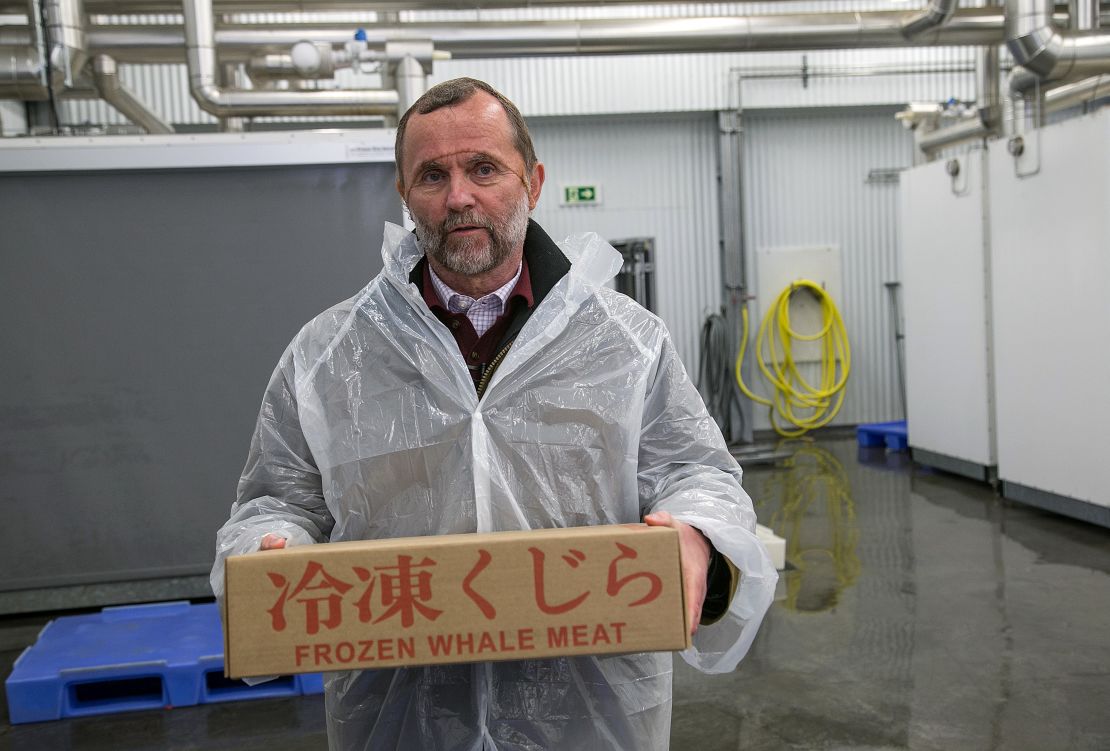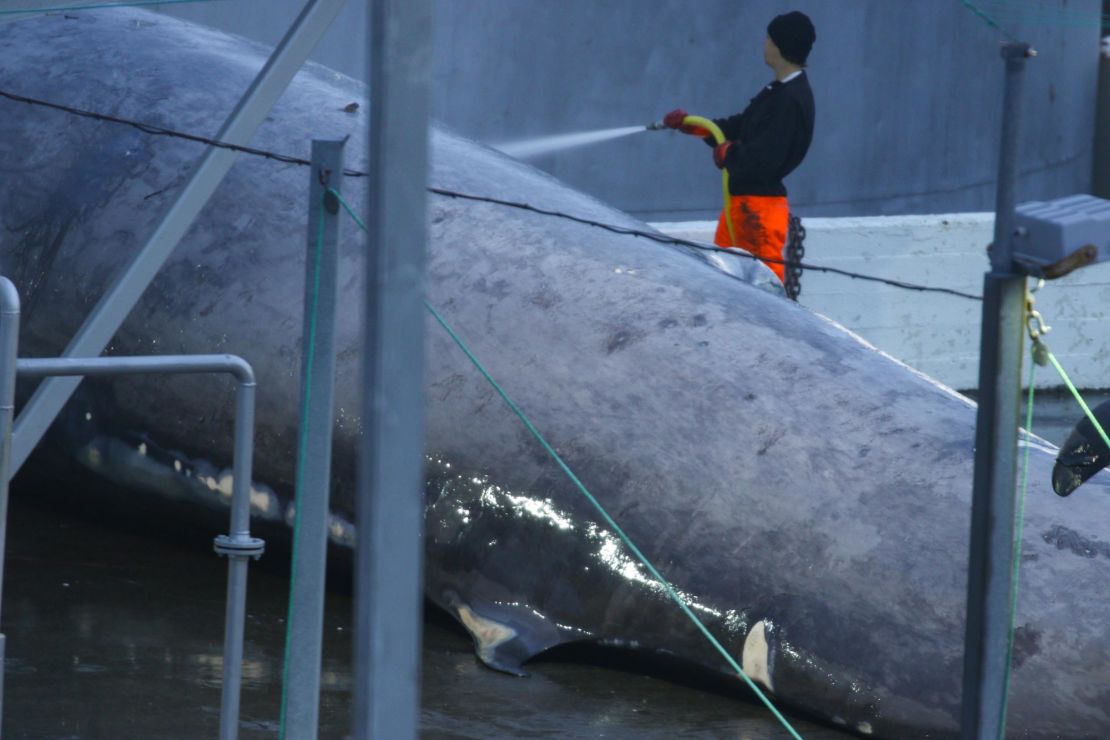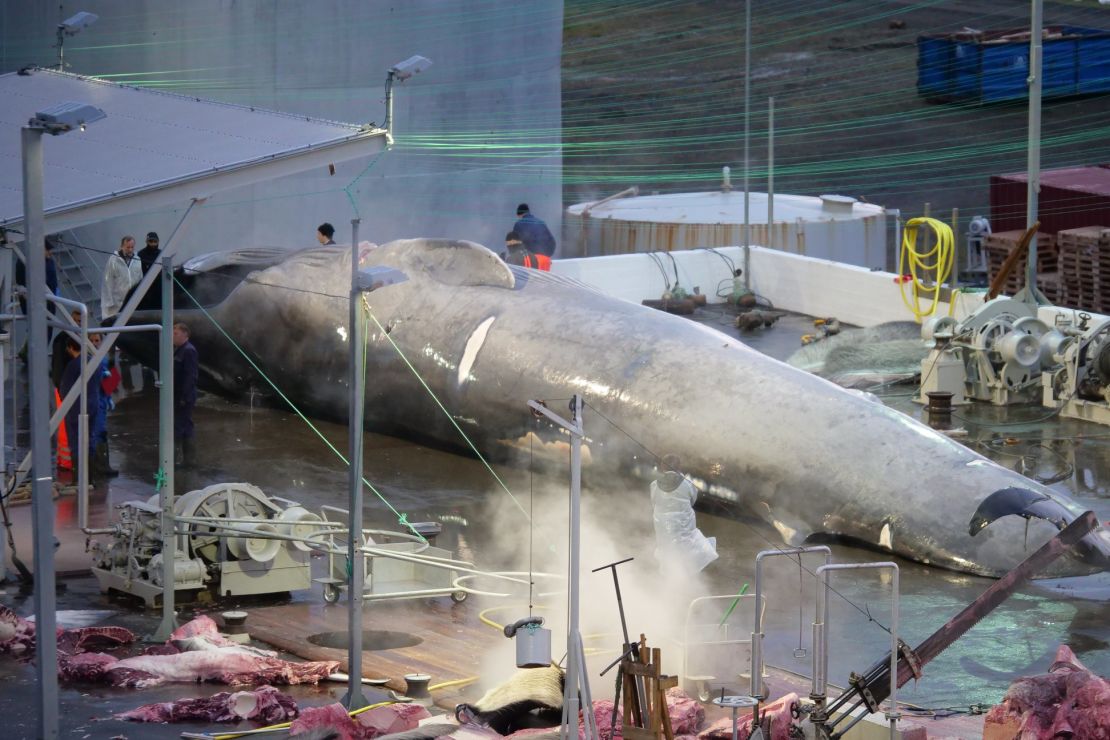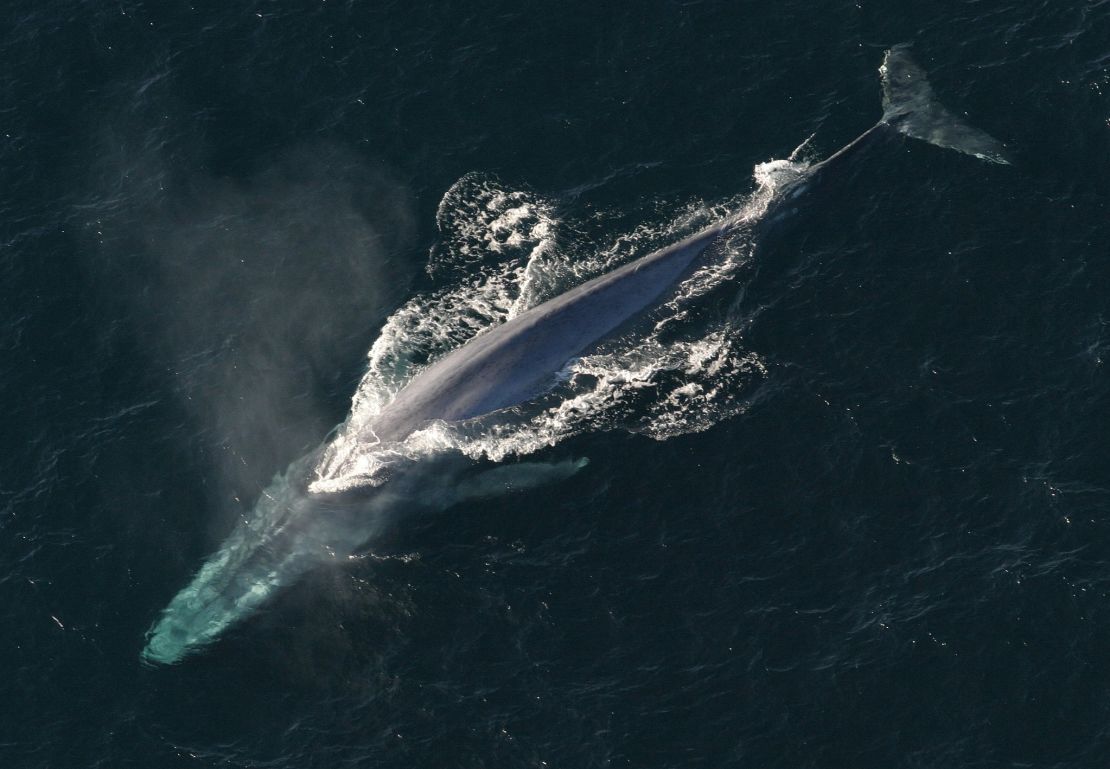One of Iceland’s richest men has hit back against claims his whaling company illegally killed a protected blue whale.
“We have never caught a blue whale in our waters since they were protected,” Kristján Loftsson, managing director of Hvalur hf, told CNN. “We see them in the ocean. When you approach a blue whale, it’s so distinct that you leave it alone.”
Anti-whaling group Sea Shepherd claimed Wednesday that Loftsson’s company had killed and butchered a blue whale in Hvalfjordur, Iceland. Volunteers monitoring the whaling site photographed orange-clad crews examining the massive carcass.
The largest animals in existence, blue whales are a protected species and have not been deliberately captured since 1978, according to the International Union for the Conservation of Nature.

Loftsson claimed that the whale in question was either a fin whale, or a hybrid species, not protected under Icelandic law. He said if it was a blue whale the kill was purely accidental.
The difference between these and blue whales is “easy to see,” Loftsson said.
Conservationists disagreed however. Adam A. Pack, researcher and professor of biology at the University of Hawaii at Hilo, said the photos appeared to show a blue whale.
“(Look at) the way the dorsal fin is hooked, the pointed pectoral fins, and the size of the animal,” he said.
Pack also noted the lack of a white lip, characteristic in fin whales, and the mottling on the whale’s flank, an identifier that acts like fingerprints, as more evidence the animal in question was likely a blue whale.

Authorities in Iceland will now conduct genetic testing to determine the whale’s species, which may take months to complete.
In a statement, the government said the “matter was (being) taken seriously by the government and the relevant authorities are investigating this issue.”
Initial information “suggests the animal caught is not likely to be a blue whale but rather a hybrid of a fin whale and a blue whale,” it added.
Hunted to near extinction
Sea Shepherd’s photos sparked instant outrage within the conservation community.
While the fight against whaling is not a new one, this case has attracted greater attention and outrage due to the blue whale’s rarity and protected status.
Reaching 30 meters long and weighing up to 200 tonnes, blue whales have been protected worldwide by the International Whaling Commission since the 1960s, after decades of what Pack calls “unchecked exploitation.”
According to the World Wildlife Fund (WWF), blue whales were nearly wiped out by whaling fleets before regulations were created. A staggering 360,000 blue whales were killed in the 20th century in Antarctic waters alone, before the IWC effectively banned commercial whaling in 1986.
Iceland regularly continues to hunt on its own terms, despite being a member of the IWC. The hunt of blue whales, however, is illegal.
“It is important to note that blue whales are protected under Icelandic law with their capture prohibited,” said Stefán ásmundsson, Commissioner of Iceland to the IWC, in a statement. “Iceland has always emphasized the need for careful conservation of marine resources and was one of the first countries in the world to take a conservationist approach to whaling.”

An uncertain future
Despite the intense criticism Loftsson has faced – he has been dubbed a “rogue whaler” by some conservationist groups – he claimed most Icelanders supported whaling.
“We are a big fishing nation, we are a nation of the ocean,” he said. “You have deer hunting in the US. It’s the same.”
He claimed that sustainability was not an issue so long as whalers stick to regulations and quotas. “Why would we want to catch and catch and make it extinct? We would be cutting our economic soul,” he added.

Regulations may have staved off extinction, but blue whales are still a long way from recovery, with an estimated worldwide population of 10,000 to 25,000. Companies also continue to hunt other whale species.
“The IWC is only as good as the nations who have subscribed to it,” Pack said. “There are nations like Japan that hunt minke whales despite pressures from the US and other countries.”
Japan recently faced its own whaling controversy when an IWC report revealed that the country had killed 122 pregnant minke whales in the name of scientific research over a three month period.
“From a research perspective, everything we need to learn about these whales can be taken from a non-lethal approach at this point,” said Pack. “We’re now in 2018. There is no reason to be hunting any cetaceans, including whales.”
